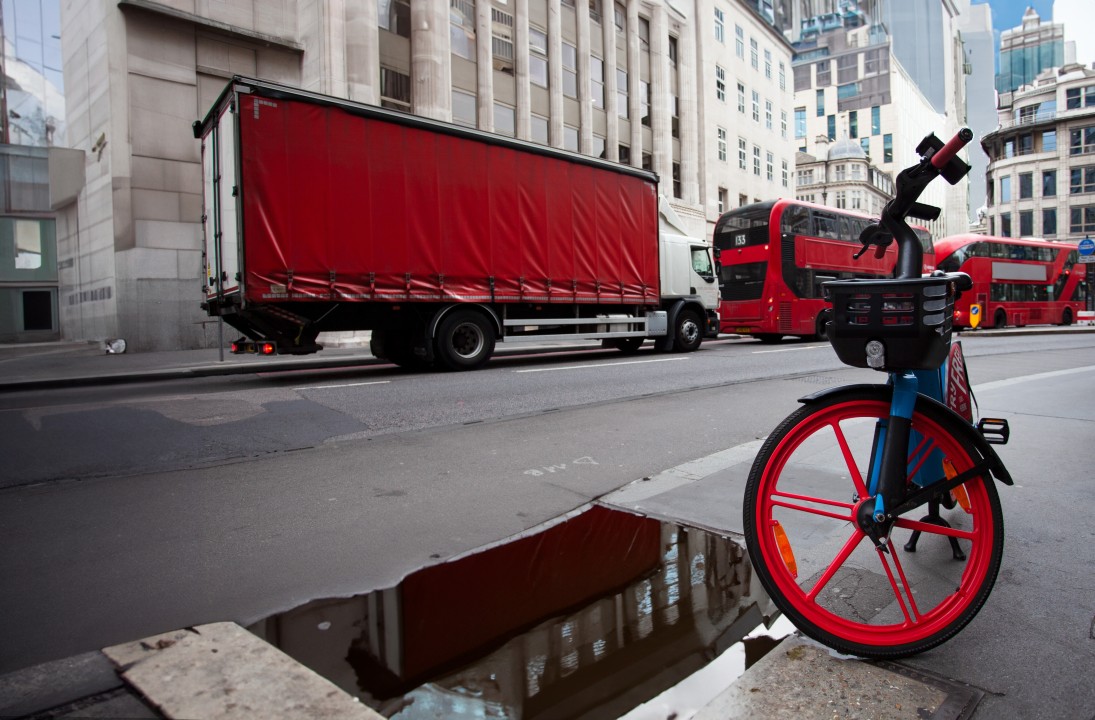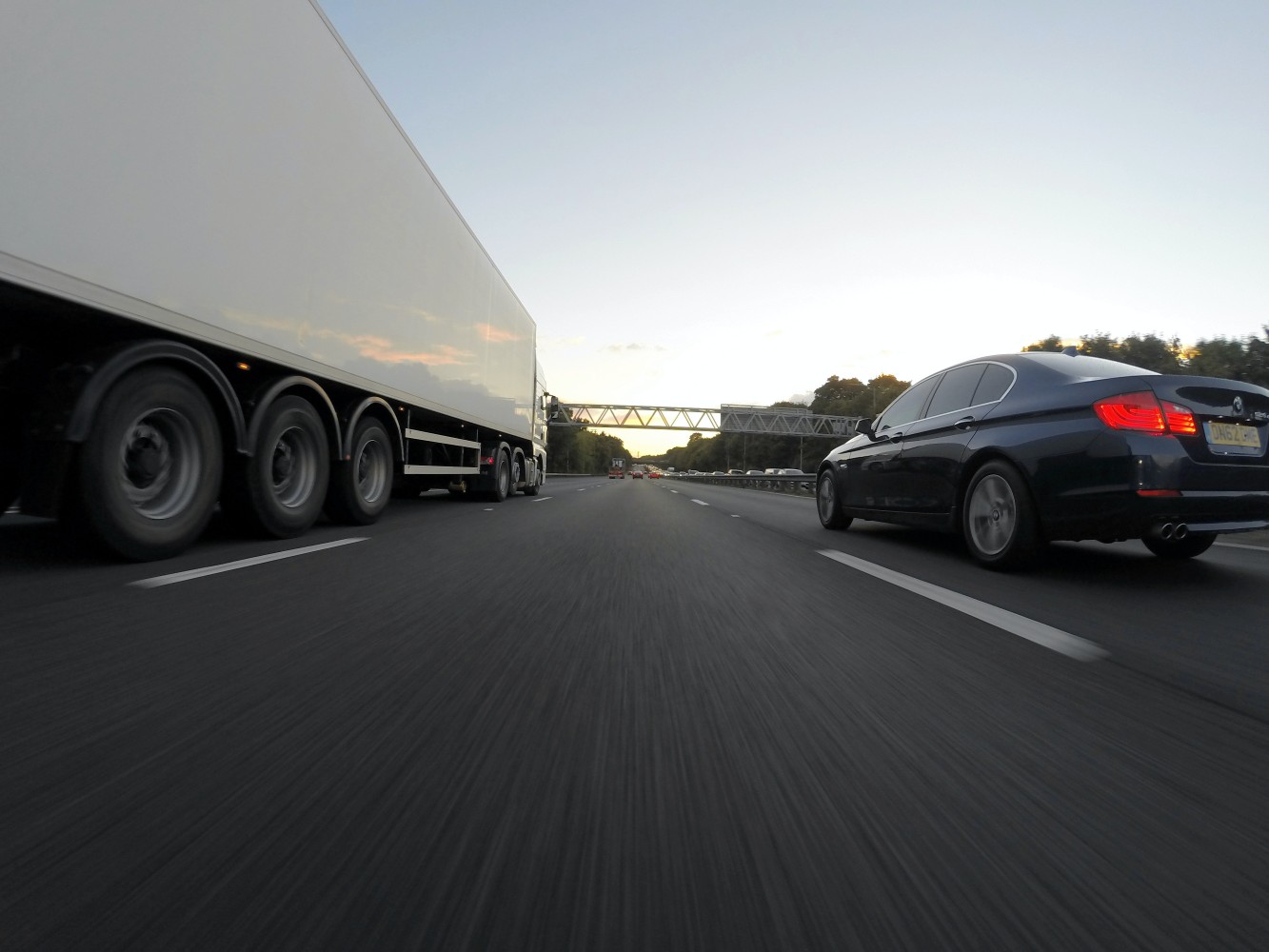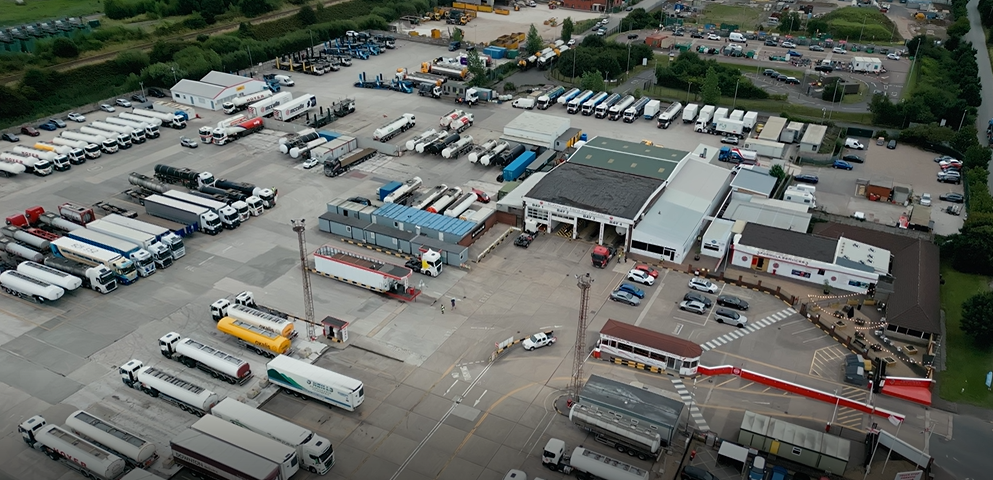
Susie Jones
Fünf Lkw-Mythen entlarvt
Erstellt: 19.08.2024
•
Aktualisiert: 19.08.2024
Lkw-Fahrer sind seit Jahrhunderten das Rückgrat des globalen Handels - sie transportieren Waren und Güter in die ganze Welt. Doch trotz seiner wichtigen Rolle war der Lkw-Verkehr lange Zeit von Mythen und Missverständnissen umgeben.
Auch wenn einige dieser Mythen mit Vorsicht zu genießen sind, können andere der Lkw-Branche und den in ihr Beschäftigten schaden. Daher ist es von größter Bedeutung, diese falschen Vorstellungen auszuräumen, damit das Lkw-Fahren auch für künftige Generationen eine attraktive Berufswahl bleibt. Wir haben unsere Fahrer-Community auf Facebook nach den größten Mythen gefragt, die sie im Laufe ihrer Karriere gehört haben.
1. Lkw-Fahrer sitzen den ganzen Tag
"Lkw-Fahrer sitzen den ganzen Tag nur herum." Ein Satz, den man häufig von Trucker Luke hört.
Die Welt des Lkw-Verkehrs besteht aus mehr als nur dem Fahren. Lkw-Fahrer arbeiten oft mit anderen an Terminals, Docks und Lagerhäusern zusammen, um Fracht zu ent- und beladen. Auch hinter dem Lenkrad geht nicht alles glatt. Lkw-Fahrer müssen sich auf das Manövrieren ihrer Fahrzeuge konzentrieren und sich an die strengen Fahrtenschreibervorschriften halten. Sie müssen genau wissen, welche Bereiche sie befahren dürfen und welche nicht, und sie müssen sich der potenziellen Gefahren bewusst sein.
2. Alle Trucker sind Männer
Dies ist ein veraltetes Klischee, das der Realität des modernen Lkw-Verkehrs nicht gerecht wird. In letzter Zeit hat sich das Verhältnis zwischen männlichen und weiblichen Lkw-Fahrern deutlich verschoben. Im Jahr 2021 machten weibliche Fahrer nur [1 %] (https://britishtrucking.co.uk/female-truckers-in-the-uk-percentages-in-the-haulage-industry-2021/#:~:text=There%20are%20currently%20315%2C000%20registered,job%20than%20their%20male%20counterparts.) der 315.000 Lkw-Fahrer im Vereinigten Königreich aus. Diese Zahl steigt jedoch von Jahr zu Jahr, da sich die Branche weiterentwickelt und sich der Inklusion verschrieben hat. Fahrerinnen wie Jodi Smith sind unschätzbare Fürsprecherinnen für Frauen in der Branche. Jodi dokumentiert ihre Erfahrungen als Lkw-Fahrerin online und inspiriert damit andere, sich hinter das Steuer zu setzen.
3. Jeder kann einen Lkw fahren
Viele gehen davon aus, dass sie, wenn sie ein Auto fahren können, auch einen Lkw fahren können. Das Lkw-Fahren erfordert jedoch besondere Fähigkeiten, die nicht für jeden geeignet sind. Für das Führen eines Lastkraftwagens ist ein Befähigungsnachweis für Fahrer (CPC) erforderlich. Um den CPC zu erhalten, müssen Fahrer fünf Prüfungen ablegen:
Theorie
Fallstudie
Übungen im Gelände
Fahren im Straßenverkehr
Praktische Demonstrationen
Hinzu kommt, dass das Lkw-Fahren einen Lebensstil erfordert, der nicht jedermanns Sache ist - mit langen einsamen Stunden auf der Straße, die oft unerwartete Herausforderungen mit sich bringen.
4. Bremsweg
"Autofahrer denken, der Bremsweg eines Lkw sei derselbe wie der eines Pkw", das hat der Lkw-Fahrer Paul schon zu oft gehört.
Der Bremsweg eines Lkw unterscheidet sich aufgrund mehrerer Faktoren erheblich von dem eines Pkw: - Gewicht: Das Gesamtgewicht eines beladenen Lkw ist höher als das eines typischen Pkw, was bedeutet, dass er mehr Kraft benötigt, um abzubremsen und zum Stillstand zu kommen.
- Mechanik: Das Bremssystem eines Lastkraftwagens ist auf schwere Lasten zugeschnitten, d. h. sie haben größere und robustere Achsen und Bremskomponenten, was zu längeren Reaktionszeiten und längeren Bremswegen führt.
Bei einer Geschwindigkeit von 60 km/h benötigt ein Lkw 132 m zum Bremsen, ein Pkw dagegen nur 73 m. Dies zeigt, wie wichtig es ist, bei einer Vollbremsung genügend Platz zwischen sich und einem Lkw zu lassen.

5. Lkw-Fahrer sind schmutzig
Im Laufe der Jahre wurde Lkw-Fahrern das Klischee des schmutzigen und faulen Fahrers angedichtet - eine ungerechte Verallgemeinerung. Viele Fernfahrer verbringen viel Zeit außer Haus und in ihren Kabinen - das bedeutet, dass ihre Hygiene und die Sauberkeit ihrer Kabinen eine Priorität sind.
Es ist wichtig, mit den Mythen und falschen Vorstellungen über den Beruf des Lkw-Fahrers aufzuräumen, um ihn besser zu verstehen. Die Entlarvung einiger gängiger Mythen wird die Attraktivität der Branche für künftige Generationen erhöhen und das Bewusstsein für den Beruf des Lkw-Fahrers als hochqualifizierten Beruf schärfen, der eine wichtige Rolle in unserer Wirtschaft spielt.
Ist Lkw-Fahren einsam?
Bevor man eine Karriere als Lkw-Fahrer in Erwägung zieht, sollte man sich darüber im Klaren sein, was dieser Beruf mit sich bringt. Ein Problem für viele Lkw-Fahrer ist der Umgang mit der Einsamkeit - lange Stunden auf der Straße mit wenig oder gar keiner Kommunikation ist für manche schwierig, für andere aber ein Traum.
Darüber hinaus kann die Abwesenheit von geliebten Menschen für viele eine Belastung darstellen. Es ist jedoch für Fahrer einfacher geworden, mit Freunden und Familie per Telefon oder Videoanruf zu kommunizieren. Es gibt auch viele Foren und hilfreiche Tipps für Trucker, um die Einsamkeit zu lindern.
Kann ein Lkw-Fahrer einen Zweitjob haben?
Angesichts der Lebenshaltungskostenkrise im Vereinigten Königreich ziehen immer mehr Fahrer einen Zweitjob in Betracht. Eine Nebentätigkeit birgt jedoch Probleme und Risiken, vor allem in der Lkw-Branche. Die Fahrer müssen prüfen, ob ihr Unternehmen eine Nebentätigkeit zulässt, bevor sie weitere Schritte unternehmen.
Bei der Ausarbeitung einer Nebentätigkeitspolitik sollten Unternehmen und Betreiber die Auswirkungen auf die Leistung, Anwesenheit und Müdigkeit der Fahrer berücksichtigen. Ganz zu schweigen von der Einhaltung der Arbeitszeiten der Fahrer und der Arbeitszeitvorschriften.



